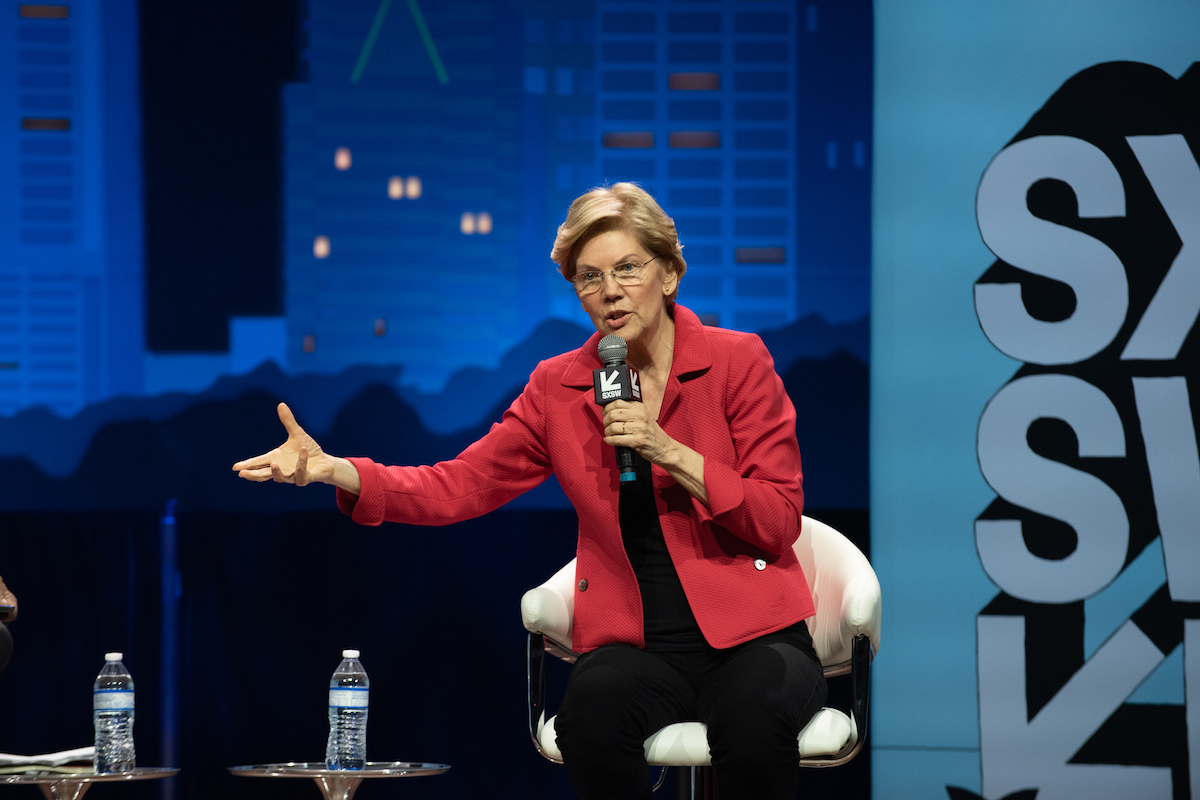You know you’re on top when everyone is shooting at you. That’s where Google is at the moment. Everyone wants to limit its power. None has gone further than Elizabeth Warren, the bright and sensible Democratic senator for Massachusetts.
Warren takes aim at Big
In 2012, in the wake of the global financial crisis, Elizabeth Warren won a US Senate seat in part by promising to break up the big US banks.
A world body – the Basel Committee – was already charged with making the US financial system safer. Warren’s proposals probably wouldn’t have made the system much safer from the GFC, where the main problem was that many institutions were doing the same dumb thing. But it was popular with people who didn’t understand prudential supervision of banks – which is to say, most US voters.
Now Warren’s running for president, and she’s running the same playbook again. The villain of the moment is not big banks but big tech, so the plan she unveiled earlier this month would break up Google – along with Facebook, Amazon and other tech companies that look too big to her.
For Google, this would mean divesting itself of its advertising business, which funds most of the stuff that Google does, including its search engine, Gmail and Google Maps.
Here’s why her proposals shouldn’t convince you.
Three doubts
My first reason for remaining unconvinced is straightforward: today’s corporate tech landscape is not the landscape of Warren’s youth. A US government antitrust suit against IBM began in 1975, when Warren was 26 (it fizzled in the early 1980s). Giant US telephone company AT&T was ordered broken up in 1982, when Warren was 33.
Four decades later, neither Google nor Facebook nor Amazon nor Apple really possesses that sort of power over business. All these firms and several others (including a slightly diminished Microsoft) are competing pretty furiously with each other for customers’ loyalty in various channels. They all compete in the global market, rather than just the US.
My second reason for remaining unconvinced is that competition seems to work in a different way today: rises and falls happen faster. AT&T dominated the US phone business from the 1910s to the 1980s; IBM dominated US business calculations from the 1930s to the 1990s. Google and its rivals have nothing like that.
Instead, today’s firms compete not merely against each other but against the newcomers who may start beating them tomorrow. Just 12 years ago, in early 2007, people were still asking questions like “Will MySpace ever lose its monopoly?” and “Nokia: Can anyone catch the cellphone king?” Yet both companies were already doomed, even though they didn’t know it.
Facebook, launched in 2004, had just opened its membership to anyone and was entering its hypergrowth stage; Apple was preparing to launch the iPhone 1.
The next round of competition for Google and its rivals may come from a Silicon Valley upstart or an expanding Chinese giant like Baidu and Weibo. Either way, they can feel it coming.
A third reason for remaining unconvinced is this: if Warren doesn’t like Google as a single entity, she’ll like it even less after a break-up. Google has consistently been the conduct leader among the large tech companies. Its advertising funds a bunch of good free services, with Google Maps probably at the top.
It has provided a much-needed viable alternative to Apple in smartphones. Regardless of the odd glitch, it’s impressively reliable. Crucially, and unlike most rivals, it makes it easy for anyone to leave the Google system and take up with a rival.
Break up Google, and its constituent parts are unlikely to behave in the same manner. And yet they will probably still dominate their respective niches. Competition will increase only a little; the net benefits to consumers will decline substantially. Size works in a different way than Warren thinks it does.
Times have changed
Warren is neither an idiot nor a populist; she’s a former commercial law professor who conducted some smart research on the causes of bankruptcy and wrote a well-received book on personal financial management.
But in a crowded Democratic presidential field, she needs a differentiator. Google and its rivals are supposed to fill that role. They don’t fill it well. The business world of Warren’s youth is simply not the world of today.







